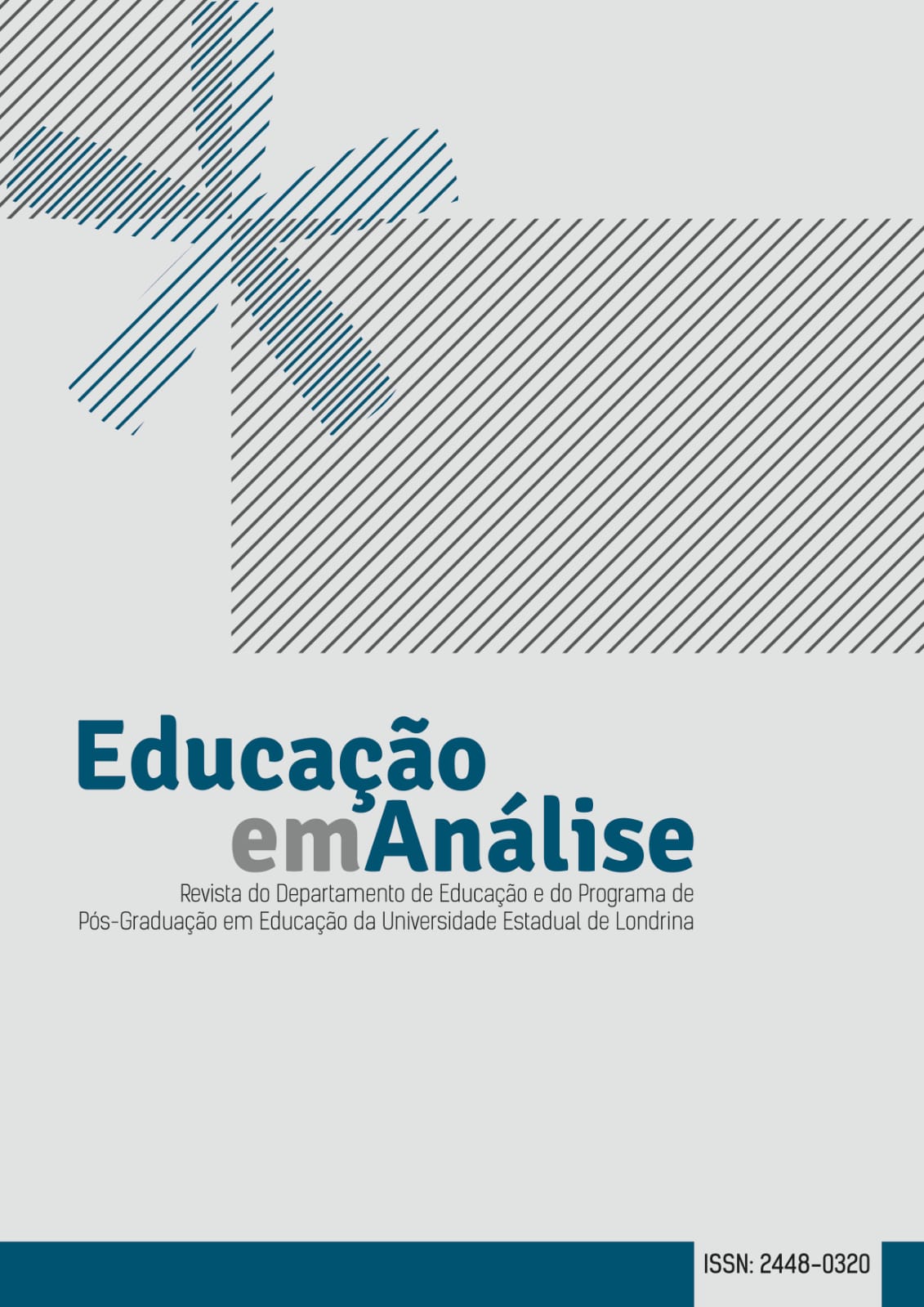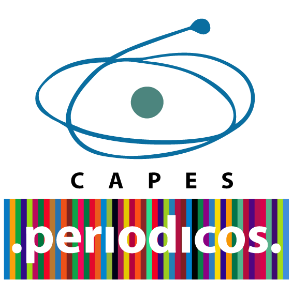The construction of geometric mental relationships in a pattern block puzzle activity at age four
DOI:
https://doi.org/10.5433/1984-7939.2022v7n2p408Palavras-chave:
blocos de quebra-cabeça, Epistemologia Genética, microanálise, construtivistaResumo
Using constructivist scholar Constance Kamii's perspective on autonomy, physical, social, and logico-Mathematical knowledge, this research investigates a curriculum method developed to engage young children in the construction of geometric knowledge. To study this method, I designed a seven-week pattern block puzzle intervention with four-year-old children in a constructivist classroom. All children were considered at-risk for school failure. The investigation is rooted in my unsatisfying experiences with pattern blocks in my preschool classrooms. Data were obtained from pre and posttests assessment administered to ascertain effects of the intervention on all children and from observations of children's behavior as they engaged in the pattern block activity. Piaget's (1936/1952), Piaget and Inhelder, 1948/1956) theory of knowledge and intelligence was the framework for detailed qualitative analysis of one exemplar's progress during the intervention. Results of pre and posttests and microanalysis indicate children made significant progress in their construction of geometric knowledge. Children learned to match shapes with corresponding spaces and distinguish among and coordinate the sizes of angles and spaces. I describe using a series of detailed drawings, one exemplar's actions during the activity. I conclude with suggestions for further research and educational implications.
Downloads
Referências
CLEMENTS, Douglas; BATTISTA, Michael T.; SARAMA, Julie. Angles. In: GRINSTEIN, L.ouise; LIPSEY, Sally (ed.). Encyclopedia of mathematics education. New York: Routledge Falmer, 2001. p. 27-30.
KAMII, Constance. Number in preschool and kindergarten: educational implications of Piaget's theory. Washington: National Association for the Education of Young Children 1982.
KAMII, Constance; DEVRIES, Rheta. Physical knowledge in preschool education: implications of Piaget's theory. Englewood Cliffs: Prentice-Hall, 1993. Original work published 1978.
KRAUS-BOELTE, Maria; KRAUS, John. The kindergarten guide. New York: E. Steiger & Co., 1882.
MONTESSORI, Maria. Dr. Montessori's own handbook. New York: Schocken Books, 1965. Original work published, 1914.
MONTESSORI, Maria. The Montessori method. New York: Schocken Books, 1964. Original work published, 1912.
NATIONAL COUNCIL OF TEACHERS OF MATHEMATICS. Principles and standards for school mathematics. Reston: National Council of Teachers of Mathematics, 2000.
PIAGET, Jean. Linguagem e pensamento da criança. São Paulo: Ed Martins Fontes, 1963. Original work published, 1932.
PIAGET, Jean. Intelligence and affectivity: their relation during child development. Translation T. A. Brown and C. E. Kaegi. Berkeley: University of California Press, 1981. Original work published, 1954.
PIAGET, Jean. The child's conception of reality. Translation M. Cook. New York: Basic Books, 1954. Original work published, 1937.
PIAGET, Jean. The equilibration of cognitive structures. Translation A. Rosin. New York: Viking Press, 1985. Original work published, 1975.
PIAGET, Jean. The origins of intelligence in children. Translation M. Cook. New York: International University Press, 1952. Original work published, 1936.
PIAGET, Jean; GARCIA, Rolando. Toward a logic of meanings. Translation P. M. Davidson and J. Easley. Hillsdale: Erlbaum Associates, 1991. Original work published, 1987.
PIAGET, Jean; INHELDER, Barbel. The child's conception of space. Translation F. J. Langdon, J. L. Lunzer. New York: Norton, 1956. Original work published, 1948.
SALES, Christina; HILDEBRANDT, C. Desenvolvendo o raciocínio geométrico com a utilização de blocos padronizados. Devries, Rheta et al. O curriculo construtivista na educação infantil: práticas e atividades. Porto Alegre: ARTMED, 2004. p. 175-191.
Downloads
Publicado
Como Citar
Edição
Seção
Licença
Copyright (c) 2023 Christina Sales

Este trabalho está licenciado sob uma licença Creative Commons Attribution-NonCommercial 4.0 International License.
Os artigos publicados na Revista Educação em Análise estão sob a Licença Creative Commons Atribuição 4.0 Internacional, garantindo Acesso Aberto. Deste modo, os autores mantêm os direitos autorais de seus trabalhos e, em caso de republicação, solicita-se que indiquem a primeira publicação nesta revista. Essa licença permite que qualquer pessoa leia, baixe, copie e compartilhe o conteúdo, desde que a devida citação seja feita. Além disso, autoriza a redistribuição, adaptação e criação de obras derivadas em qualquer formato ou meio, incluindo uso comercial, desde que a atribuição à revista seja mantida.
A revista se reserva o direito de efetuar, nos originais, alterações de ordem normativa, ortográfica e gramatical, com vistas a manter o padrão culto da língua e a credibilidade do veículo. Respeitará, no entanto, o estilo de escrever dos autores. Alterações, correções ou sugestões de ordem conceitual serão encaminhadas aos autores, quando necessário.
As opiniões emitidas pelos autores dos artigos são de sua exclusiva responsabilidade.

























